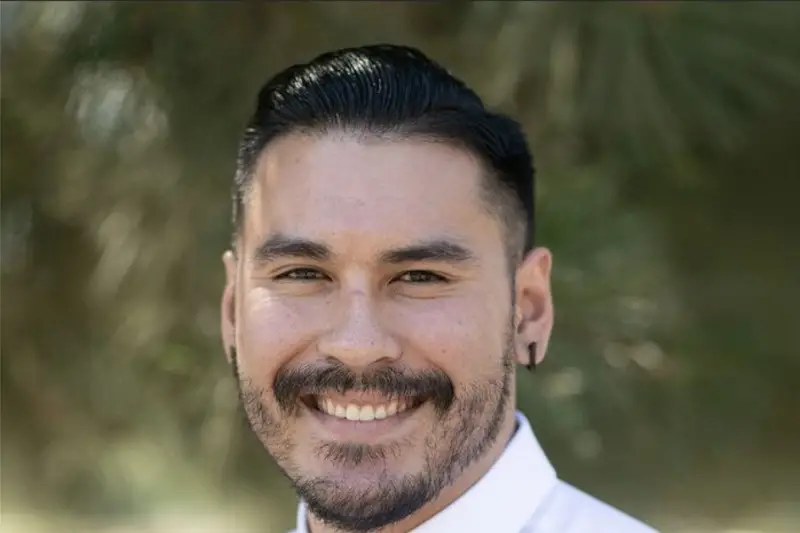Click here to get this post in PDF
When a Veterans Affairs report revealed that 22 US Veterans commit suicide every day, Mission 22 took on that challenge. Veterans started the organization, and the vast majority of its employees today are either Veterans or their wives and relatives. However, Veterans cannot take on this problem alone. The mental health crisis facing many returning vets requires support and understanding from the entire community.
To engage and educate people everywhere, Mission 22 established a network 3,500 strong and spanning all 50 states. This ambassador program makes a difference by increasing awareness in local communities about the issues Veterans and their families face.
As a former infantry machine gunner in the Marine Corps, Thomas Shevlin is now director of the Recovery + Resiliency program at Mission 22. His personal experience enables him to bridge the gulf that so often separates communities and Veterans as they reenter mainstream society.
“We have to tackle the beast together,” Shevlin says. “At Mission 22, we focus on three pillars: Veterans, families, and communities. When a vet’s tour ends, our job begins.”
Veterans still struggle as they return from combat
Times have changed since the days of Vietnam Veterans returning to hostile protests. Unfortunately, this does not mean that all of today’s Veterans return to ticker tape parades and smooth transitions.
Inspired by his father, who served as a marine for 21 years, Shevlin enlisted out of high school. “My journey in the Marine Corps began in 2013 as a machine gunner in Charlie Company,” he recalls. “After that, I was deployed to Syria to eradicate ISIS and aid Syria’s Defense Force.”
After years of combat, Shevlin found himself back in the US. “Being dropped from the ultra-vigilance of a combat zone directly into the quiet of a civilian lifestyle caught me off guard,” he remembers. “My anxiety was through the roof. I was married at the time, but the stress of the transition ultimately led to our divorce.”
After his divorce, Shevlin moved back into his parents’ home and enrolled in community college. He also renewed his former interest in weightlifting and bodybuilding.
Unfortunately, Shevlin found those hobbies detrimental to his overall health and well-being. “Steroid use coupled with PTSD symptoms did a number on my psychological health,” he explains. “Eventually, I hit rock bottom after being arrested for assault. That was the moment I knew I needed help. Going from a highly decorated Marine to a civilian with criminal charges finally proved to me that something was seriously wrong.”
Today, Shevlin is remarried with two children, but it was an uphill battle for him and his family. “I brought a lot to the table that was hard to deal with,” he admits. “In addition to my PTSD, my pregnant wife and I were both unemployed and trying to find a house in the middle of a recession.”
To provide for his growing family, Shevlin took on work at a construction company as a CNC operator. His lack of previous experience in the role immediately led to a return of PTSD symptoms. “That job was worse than any work I did in the Marine Corps,” he says. “Even if they know you’re a Veteran who served in combat, the civilian sector is completely unforgiving.”
Thankfully, that’s when the job for Veteran Home Coordinator Assistant opened at Mission 22. Within a month, Shevlin was hired. Then, in six months, he was promoted to the position of director for the Recovery + Resiliency Program. Today, he uses his military and health background to design comprehensive and holistic programs that help both Veterans and their communities.
The comprehensive programs for Veterans and their families at Mission 22
Mission 22 provides a wide range of individualized services for Veterans and their families. Comprehensive support begins with biometric monitoring of stress, sleep, and activity levels. Other supports include meditation, coaching, exercise programs, wellness supplements, and reading resources to help Veterans put their experience into context.
“Our holistic programs are not quick fixes,” Shevlin explains. “Currently, there’s no treatment that cures PTSD — not even medication. However, our three holistic programs aim to help Veterans and their family embrace PTSD, move forward, and live a fulfilling life. We offer a 12-month program specifically for combat Veterans, a six-month program for other Veterans, and a six-month program for spouses.”
These three Recovery + Resilience programs integrate traditional healing practices with cutting-edge research. They encourage Veterans to reinvest in themselves and the excellent qualities they bring to their communities and homes.
Why communities need to get involved
Veterans dealing with symptoms of post-traumatic stress disorder, traumatic brain injury, or military sexual trauma should not be forced to wade through red tape before receiving the therapy they need. Mission 22 supports Veterans immediately with programs that offer care and healing. Recovery + Resilience provides comprehensive support that enables Veterans to face and conquer their unique set of obstacles.
Mission 22 believes that the abilities and resources that the nation’s Veterans and service members bring to the table are invaluable. They know that Veterans are unparalleled in terms of leadership skills, life experiences, teamwork ethic, and honesty. Battle-tested Veterans can handle any obstacle, and they strengthen American culture and values. When communities stand behind Veterans and their families, everyone benefits.
You may also like:
How Employers Can Support Veterans’ Mental Health
How Mental Health Public Speakers Can Help Employees in the Workplace
Image source: Thomas Shevlin – Mission22.com

